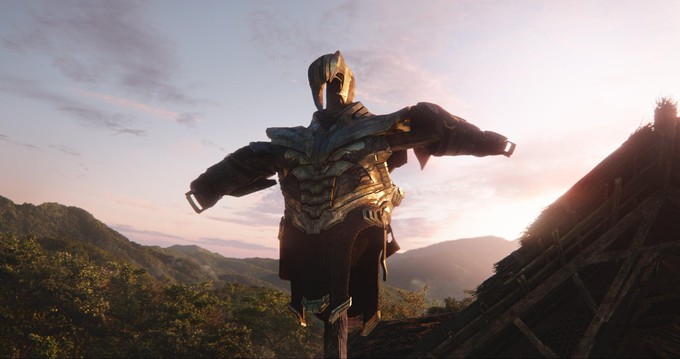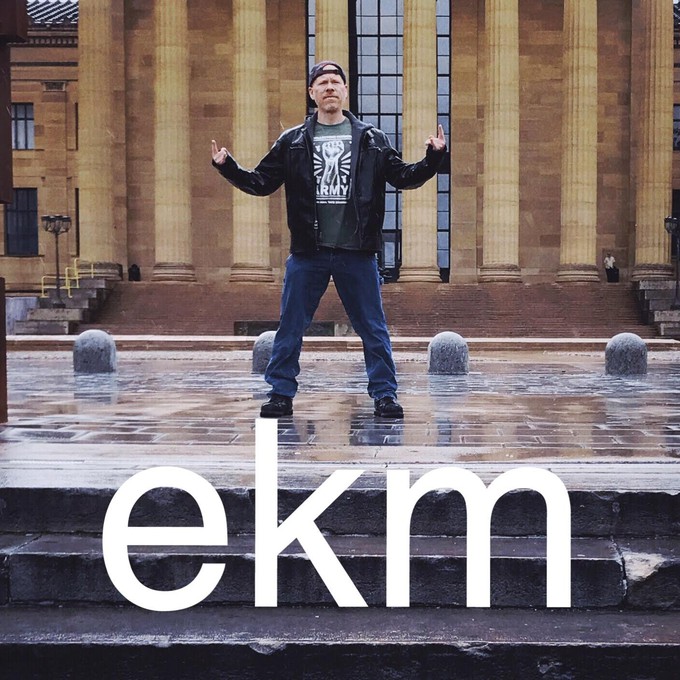
Show of hands: who hasn't seen AVENGERS: ENDGAME? Anyone? Good. Let's dig into this.
So I wrote a review. Some of you liked it. Some of you called me names. It's all good; it's AICN, after all. These talkbacks are vicious.
Anyway, I felt I had to see it again, particularly in light of the praise being heaped upon it by critics and fans alike. My feeling is that most readers latched onto my negative criticisms and missed the compliments I gave the movie; then again, considering that ENDGAME is the capstone to an eleven-year buildup, anything less than a standing ovation draws fire. Event movies create tunnel vision. It will be interesting to see how this installment will be assessed in hindsight once it's been allowed to cool a bit. See: THE DARK KNIGHT RISES.
Nonetheless, ENDGAME remains, for me, a film with both tremendous highs and lows. It's an incredible rollercoaster of spectacle and emotion that roars along for three hours, provided you don't stop and think about what's actually happening onscreen. The moment you do, it all falls apart, and for two reasons: time travel, and the decision to move the narrative five years into the future. While I touched on this previously, these points became significantly more distracting during a second viewing, for reasons that harm not only ENDGAME but the MCU in general as we transition into Phase Four.
First off, let's just get the obvious out of the way: time travel sucks. It's a cheat. It's a lazy and creatively bankrupt solution that no good writer should employ when digging themselves into a narrative hole from which there is seemingly no escape. The greater the conflict, and the more unwinnable the situation, the more ingenious the resolution has to be for it to be satisfying both thematically, and emotionally. When Thanos snaps away fifty percent of the world's population during the climax of INFINITY WAR, and we watch half our team of heroes reduced to dust, it's a jaw-dropping moment. The expectation is for our remaining Avengers to do something equally unexpected in order to set things alright. That's why they're called "The Avengers." Soldiers and sorcerers, gods and rage monsters and geniuses, uniting in one last stand against a cosmic being who wields the power to make and unmake the universe as he sees fit. One could be forgiven for expecting to see a desperate assault on Thanos to restore all that was lost. After all, isn't this why Nick Fury summoned Captain Marvel? Why else were we given a Carol Danvers origin story if not to establish her as a powered-up-as-fuck character who could legitimately challenge Thanos, and tip the odds in favor of The Good Guys? Surely not just to give her cameos at the beginning and the climax of ENDGAME so that she could fly one ship to safety while taking another one down...? All signs pointed to her wresting the gauntlet away from its wearer, facilitating the use of the stones to reverse the cataclysm he had wrought.
But no, we get time travel. Call it "quantum" this or that or whatever, but it's still the same thing. The characters themselves even joke about it. And while it creates some fun set pieces in which our heroes return to earlier episodes in the franchise, it's still just one gigantic retcon rather than an organic solution to the problem. If this is how the issue of Thanos will be resolved, why not just employ the same technique in future films? Do it in every movie. If not, then where's the future conflict? Keep Ant-Man's X-Con-mobile at Avengers headquarters and make time travel a routine solution...
...or just use the Time Stone. You know, the one Doctor Strange willingly hands over to Thanos at the end of INFINITY WAR? The gem that allows time to be altered, thus removing any need for a machine built out of the back of a van...?
In a very meta episode early on, the Hulk goes to great lengths to tell us that time travel isn't like what we see in the movies; while it's possible to alter the past, these changes create parallel timelines rather than affecting the present continuity directly. It's notable that whenever these discussions come up, characters are talking so quickly that it almost seems like an attempt to give the viewer information overload. Don't worry about it, folks! Just go with it. But when the Russos break their own rules -- such as the eventual fate of Steve Rogers, which is very much related to his quantum-hopping adventures -- none of it makes sense, and it's hard to care. No one should have to walk out of a three-hour concluding chapter trying to work out how and why things happened the way they did. Worse, no one should be trying to do it during scenes demanding emotional investment. Wait, you mean Steve married Peggy? What about her husband? Does that mean he was still making time with Sharon later on? What? Why? Gross.
This also affects our adversary, and how we're asked to see him within the context of this final chapter. The Thanos we've known up to this point is dispatched early in ENDGAME. Having accomplished his goal, the Mad Titan destroys the gems and has chosen to live out his existence as a farmer when the remaining Avengers come knocking at his door. First, they cut off his hand, then they cut off his head. It's an anticlimactic farewell to a character we've invested so much time following, and being forced to identify with; because even if we abhor his methods, we can at least understand his motivations. The ends justify the means, in his book. He isn't trying to conquer the universe; he's trying to save it from itself.* So once the time travel thing kicks in, we meet a Thanos from an earlier period who assumes the mantle of Bad Guy, meaning we aren't watching The Avengers battle the same character. It's a hollow victory over a Thanos who hasn't taken the same journey, hasn't had to murder his own daughter to gain possession of an elusive Infinity Stone, and hasn't committed mass genocide. This renders the conflict during the climax of ENDGAME merely conceptual. It isn't a rematch.
The minute the Russos decided to hop forward five years in the primary (616?) timeline, we see why time travel became a plot device; the further down the line we get from the Thanos Snap, the more difficult it becomes to restore the missing population. If half the world has aged, and those who haven't are simply restored to the moment they were erased, then it creates a series of storytelling issues that can't simply be buttoned up in a single epilogue. But even if subsequent films deal with 1) a Rapture-like event, 2) the affects of this event on global economy, belief systems, basic societal functionality, et al., 3) the reversal of said Rapture-like event, coupled with the return of characters who've not aged, and 4) the affects of this second event on global economy, belief systems, basic societal functionality, et al., then it has to be asked: Is this good for the MCU? A story like this works THE AVENGERS, where you have a collection of oddball superheroes battling global threats...but what happens when we return to the solo films? Does a movie as fun and whimsical as SPIDER-MAN: HOMECOMING need a sequel that features a high school full of kids shoegazing over their place in the universe? We've all seen the FAR FROM HOME trailer; are we expected to believe that only the core cast were dusted by the Thanos snap, and upon return, go happily sightseeing in Venice? How is any of this addressed in a satisfying way that doesn't wreck the tone for films not built to support such existential exploration?
If there's one thing I feel most will agree with, it's that INFINITY WAR promised a very different, and far more satisfying conclusion. While this doesn't make ENDGAME a bad movie, it remains a disappointing one if the viewer shrugs off the hype, tempers the afterglow, and actually looks at it, less as a pop culture event than a story told in a movie. At that point, the sharp edges show. Which timeline are even in, anymore? What's changed? What's the same? Anyone out there got a time machine in the back of their van so we can go back to when this shit was fun and didn't require a wall chart to make sense of...?
*We can only hope that The Dusted include idiots who treat theaters like their living rooms, and talk and tweet throughout movies. Yeah, you.
Erik Kristopher Myers (aka ekm)
Pretentious Filmmaker
@ekmyers

